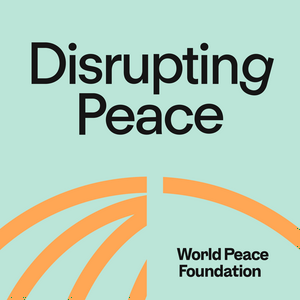We’ve all heard the phrase “toxic masculinity”. In this episode, we explore why this isn’t the most helpful concept, and more importantly, how healthy masculinity can increase peace.
We dig into what we can learn from successful interventions in Brazil and Colombia, unpack the “man box”, and learn tools for opening up conversations around masculinity, rather than shutting them down.
Gary Barker is an international voice for healthy manhood, gender equality and violence prevention. He is the founder and CEO of Equimundo Center for Masculinities and Social Justice, an international organization that works globally, including the US, to engage men and boys in healthy masculinities. Find out more about Gary’s work at www.equimundo.org. The State of American Men 2025 report can be found here: www.equimundo.org/resources/state-of-american-men-2025
Caroline Ferraz Ignacio is an international development professional focused on gender equity and social inclusion. She has worked with Instituto Promundo in Brazil, Promundo Portugal and Equimundo to support research and programming across Latin America and Europe, and with the U.S. Agency for International Development (USAID) as the Gender and Inclusive Development Advisor in Colombia and as the Gender & Social Norms Advisor in Washington DC. Connect with Caroline on Linkedin at: www.linkedin.com/in/caroline-ferraz-ignacio
We mentioned two organizations that are helping young dads: the Vermont’s Dad Guild: www.dadguild.org & Brooklyn Stroller Club: www.brooklynstrollclub.com
Let us know what topics you’d like us to cover next by emailing us at
[email protected].
Disrupting Peace is a production of The World Peace Foundation. The show is produced by Bridget Conley and Emily Shaw. Engineering by Jacob Winik and Aja Simpson. Marketing and Social media by Emily Ruhm. Show artwork by Simon Fung.
Special thanks to Jeremy Helton, Lisa Avery, B. Arneson, and Alex de Waal, and the team from the Tufts Digital Design Studio, including Kimberly Lynn Forero-Arnias, and Miles Donovan.
Find out more about the World Peace Foundation at worldpeacefoundation.org. Follow us on Bluesky at worldpeacefdtn.bsky.social, and on Instagram at @worldpeacefdtn.


